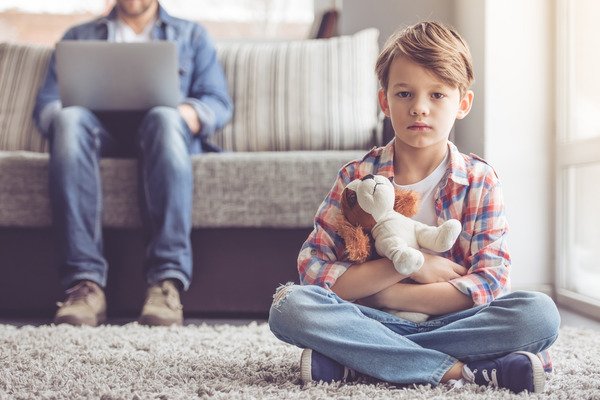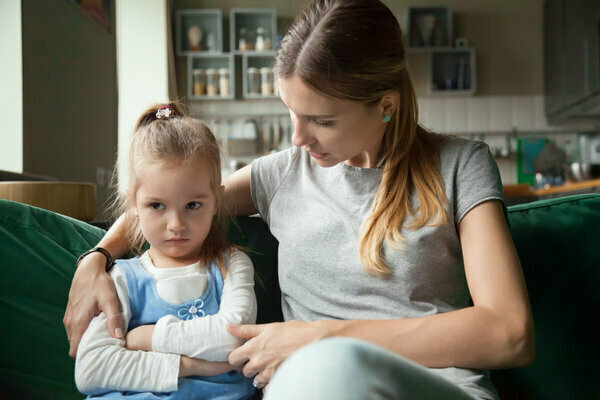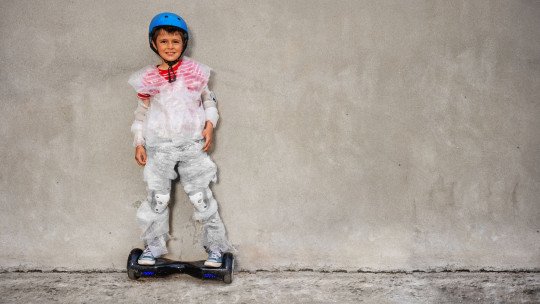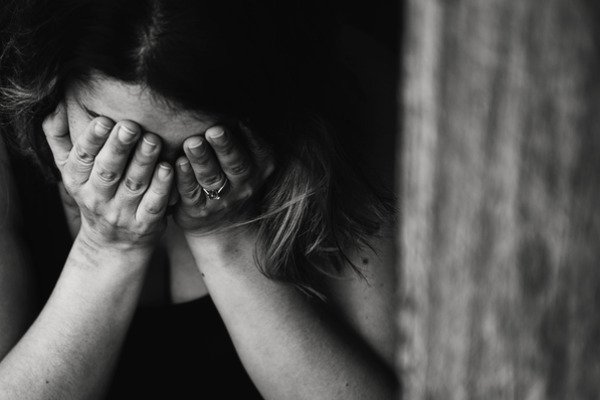The family is a basic pillar for the development of children, so rejection has multiple consequences. Enter and discover what they are, as well as the types and causes of abuse.
Childhood is one of the most important stages for human development. In this, parental figures play a fundamental role since they are responsible for providing the necessary care for the psychological and physical development of the child. The reality is that the family is the first social contact that the child has, therefore, it is from this group where social interaction and discovery of the environment that surrounds them begins. Unfortunately, when a situation of child abuse occurs, this first contact occurs from a context of stress that ends up generating multiple consequences in the child, seriously impacting their development.
If you want to know more about the effects of child abuse and the four types of violence keep reading this article to find out.
How does parental rejection manifest itself? Types of child abuse
When we think about abuse or rejection by parents, the physical abuse since it is the easiest to identify. However, rejection by the family does not have to occur together with the physical abuse Taking into account the consequences and type of aggression, the following can be differentiated types of child abuse :
- Physical abuse: Physical abuse is what is commonly associated with the idea of violence. This type of abuse includes all types of physical and intentional action by an adult towards a minor and the consequences of attacks can range from acts that leave no visible marks to disability, disfigurement or even death.
- Negligence: Neglect is any situation in which caregivers do not provide the child with an adequate environment to meet their physical (hygiene, protection, etc.) and cognitive needs.
- Psychological abuse: Psychological abuse refers to a set of behaviors that, despite not generating a visible impact on the child, cause emotional damage. Examples of this type of abuse They are threats, rejections, insults, contempt, criticism, etc.
- Sexual abuse: When we talk about child sexual abuse within the family context, we are referring to any type of sexual contact that an adult member of the family has towards a minor. This typology includes different types of sexual abuse such as, for example, incest, rape, sexual harassment and sexual abuse without physical contact (verbal seduction, exposure of sexual organs in order to obtain pleasure from it, etc.).
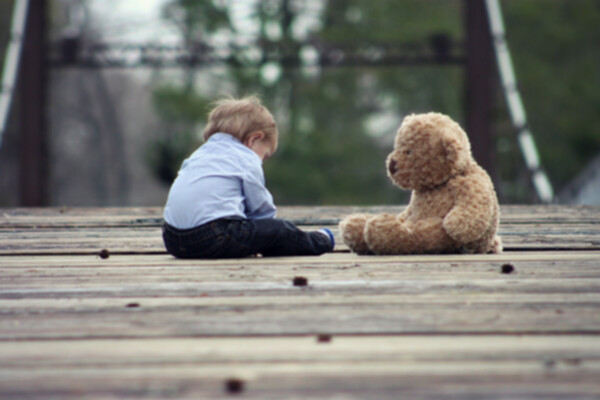
Causes of childhood violence:
Sometimes we can come to think that the child abuse It is only due to one cause: the abuser. However, when domestic violence occurs, there is no single aspect that can explain this situation. Therefore, when a situation of violence towards a child occurs, there may be multiple factors that precipitate or maintain this situation, such as the following:
- Lack of parental skills: It is obvious that a family that abuses its children has a lack of parenting skills. However, sometimes these difficulties are related to parenting patterns that have been transmitted from generation to generation. Therefore, on many occasions, those families that mistreat their children have been exposed to mistreatment during their childhood and perceive these practices as normal.
- Family crises: Certain events such as, for example, the separation of parents, the death of a family member, etc. can cause stress within the family environment that exceeds coping strategies and ends up leading to child abuse Normally these types of situations occur in families that have previously been able to guarantee the protection and good development of the child. Therefore, in these cases, they are parents who, despite the difficulties, with external support, can recognize the suffering and assume their responsibility.
- Child’s illness: Sometimes the child’s health status generates an alteration in the family system since the parents are not capable or are not prepared to manage the situation. This does not mean that the child is to blame, but rather that sometimes, one of the factors that can influence abuse is that the parents cannot manage the stress that this situation causes them.
- Economic problems and difficulties in accessing basic health services.
Consequences of child abuse:

The consequences of rejection by one’s own family can last into adulthood. Some of the consequences of parental rejection include the following:
- Low self-esteem: Abusive behavior by reference figures ends up causing the child to develop feelings of low value and inferiority. When the minor suffers violence she tries to give him/her an explanation and at first the situation is attributed to external causes (she had a bad day, she was in a bad mood, etc.). However, as the abuse becomes chronic, the child begins to think that there is something in him/her that explains the abuse thus affecting their self-esteem.
- Difficulty managing emotions: Parents are the people in charge of providing the child with strategies to regulate their own emotions. When this does not occur and the child is subjected to a situation of chronic stress (such as abuse), the child does not have sufficient strategies to be able to manage his or her own emotions and feel safe. This will end up leading to difficulties in emotional management, anxiety, psychosomatic disorders, low tolerance for frustration, difficulties in emotional expression, etc.
- Alterations in physical development: Both physical and emotional abuse not only generates psychological consequences but both can end up leading to physical alterations such as, for example, psoriasis, asthma, atopic skin, etc. due to chronic exposure to high stress situations. In fact, both the emotional abandonment and the physique can lead to alterations in the growth hormone, thus causing what is called psychosocial dwarfism.
- Cognitive alterations: Growing up in a safe context allows the child to explore the environment safely since they know that if they are in danger there is someone who will cover their needs. When a child is abused, this exploration of the external occurs to a lesser extent because the child cannot predict what would happen if he or she were in danger, which entails an alteration in cognitive development. In fact, it has been shown that victims of family violence present difficulties in learning, attention, understanding, reasoning, etc.
- Alteration in the vision of the world and of others: Children who have suffered abuse have difficulties developing and maintaining relationships with other people. The lack of self-esteem, poor emotional regulation and the stress caused by abuse ends up having an impact on the child’s perception of the world and others, perceiving the external as unreliable, dangerous, etc.
- Psychological disorders: It has been proven that experiencing family violence during childhood is a risk factor for the development of various disorders such as, for example, eating disorders, depressive disorders, post-traumatic stress disorder, personality disorders, anxiety, etc.
If you have experienced a situation of abuse during childhood and feel that these experiences continue to influence your daily life today, it is important that you seek help from a professional. If you know a case of child violence remember that it is mandatory to notify the authorities through number 012.




